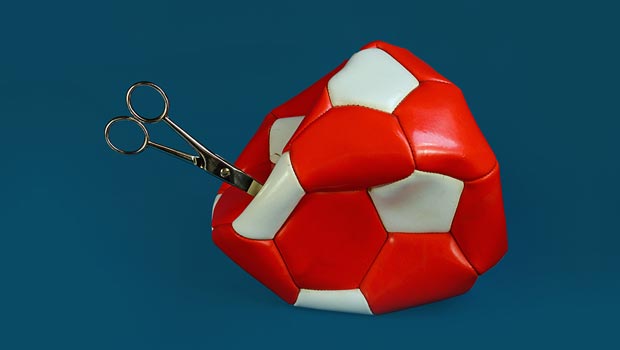Your own worst enemy: ways we sabotage ourselves professionally
We’ve already introduced you to the 9 types of collabohaters, a productivity-draining and collaboration-thwarting collection of coworkers. One of the most dangerous types of collabohaters is the saboteur, who may lash out at you for a variety of personal and professional reasons (see our article on how to deal with saboteurs).
But sabotage doesn’t always come from the outside. We can be our own worst enemies—sometimes in dramatic fashion, but usually in subtler ways.
1. I was just wondering…
I just want to be honest: I’m a repeat offender of this rule myself. In recent years, the word “just” fell into disfavor, identified as one of those tiny words that can damage your credibility.
“I am all about respectful communication. Yet I began to notice that just wasn’t about being polite: It was a subtle message of subordination, of deference. Sometimes it was self-effacing. Sometimes even duplicitous. As I started really listening, I realized that striking it from a phrase almost always clarified and strengthened the message,” wrote leadership strategist Ellen Petry Leanse.
2. Selling yourself short
Do you wrap yourself into contortions when you notice a mistake or advance a competing idea? “I mean, I could be missing something here, but…”
Self-doubt and unnecessary self-deprecation can sabotage everything from a mundane conversation about a project plan to your arrival at a career crossroads.
3. Selling yourself too high
Working with a know-it-all is frustrating, and, as we’ve touched on previously, this new era of cross-departmental collaboration and flattened org charts is giving know-it-alls a chance to really overstep their boundaries. By posturing as the expert on everything, you’ll be taken less seriously about, well, everything.
4. Volunteering into oblivion
It’s noble to try to solve all the problems in your organization, but stretching yourself too far and overbooking your schedule will make you more stressed, less rested, and ultimately more likely to miss deadlines or finish work that isn’t up to your usual exacting standards.
“You’re always on. It’s great, exhilarating and adrenaline-filled, but you can get out of alignment pretty fast by reaching over all the time in so many different directions,” Dawna Ballard told us at last year’s Collabosphere.
5. Fear of making mistakes
Professionals and creatives tend to pride themselves on being their own toughest critic. That’s all well and good, but sometimes the same uncompromising philosophy that fuels excellence can also nip worthwhile ideas before they’ve bloomed.
“Most times, ideacide happens without us even realizing it,” wrote Matthew E. May recently for 99U. “A possible off-the-wall idea or solution appears like a blip and disappears without us even realizing. As a result, some of our best stuff is suppressed before even getting out into the world.”
Learning how to turn off the self-censors can be a key to increasing performance and productivity. In basketball, for example, certain players will always shoot better when the shot clock is about to expire, leaving them no time to think “Am I in the right spot? Should I pass? Should I shoot?”
To lapse into coach-speak, you never make a shot you don’t take.
6. Apologizing for poking holes in half-baked ideas
One of our collabohaters is the half-baker, a potentially well-meaning but disruptive force that’s always throwing out ideas without always remembering to include substance or reality checks. When you want to call these half-bakers and jokers on their nonsense, you don’t need to be a jerk about it, but you don’t also have to be apologetic.
There’s even a Gmail plug-in designed to help you identify these passive words that work against your message.






